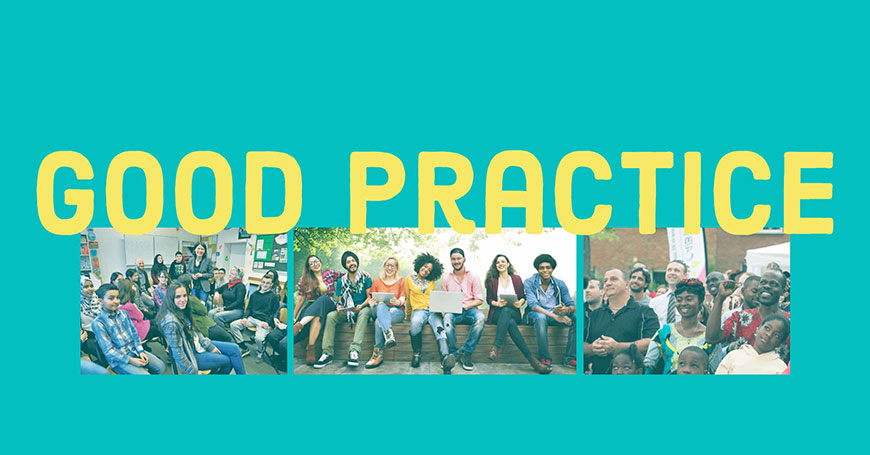Intercultural cities: good practice examples

The first step is the adoption (and implementation) of strategies that facilitate positive intercultural encounters and exchanges, and promote equal and active participation of residents and communities in the development of the city, thus responding to the needs of a diverse population. The Intercultural integration policy model is based on extensive research evidence, on a range of international legal instruments, and on the collective input of the cities member of the Intercultural Cities programme that share their good practice examples on how to better manage diversity, address possible conflicts, and benefit from the diversity advantage.
This section offers examples of intercultural approaches that facilitate the development and implementation of intercultural strategies.
The inclusive employers toolkit
Purpose: Bradford Council champions inclusive business practices Stimulus/Rationale: Process: In Bradford (United Kingdom), the accountancy and consulting firm Grant Thornton have developed an...
Everyone different, Everyone matters
In Calderdale (United Kingdom), the local authority has led the development of a social cohesion strategy, produced in consultation with the local public, under the banner of ‘everyone different,...
Integrating and supporting the ethnic minorities in Camden’s businesses
Camden takes action to encourage businesses from ethnic minorities to move beyond the ethnic economy and enter the mainstream economy and higher value-added sectors. Good Work Camden has partnered...


